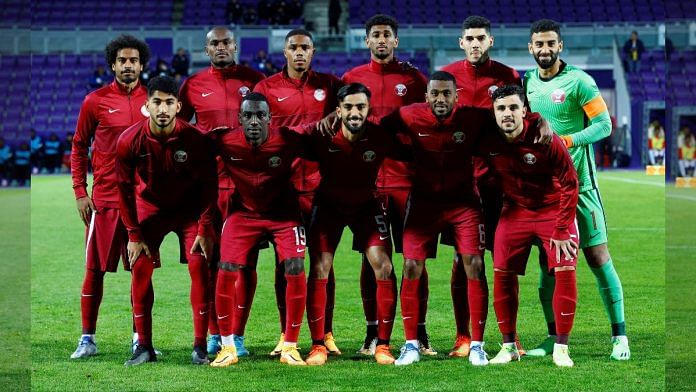Doha: When Qatar play Ecuador in the World Cup showpiece opener on Nov. 20, an 18-year, billion dollar national project to build a respectable – and possibly competitive – national squad will be put to the test.
Victory in that opening match, the team’s first appearance at global soccer’s showpiece event, would give Qatar vital points and the momentum needed to make it through to the last 16, said former Qatar forward Mohamed Mubarak al-Mohannadi.
“I’m looking to win the first game. It’s the most important… We’re not asking them to (win) the World Cup,” he added.
Most of Qatar’s World Cup side – the majority of whom are nationals and expatriates born, raised and naturalised in Qatar – were scouted as kids and came up through the ranks of the $1.3 billion Aspire Academy.
Sheikh Jassim Bin Hamad Al-Thani, brother of Qatar’s ruling emir, established Aspire in 2004 to develop homegrown players — six years before Qatar’s national team automatically qualified for the 2022 World Cup when it was named host country.
Many of the side – including star duo Akram Afif and top-scorer Almoez Ali – have been playing together under Spanish-born coach Felix Sanchez since 2014, when he led them as an Under-19 Qatari side to the AFC youth championship title.
“A lot of these players have been with (Sanchez) since they were kids … he’s like a father to these guys,” said Mohamed El Gharbawy, a Qatar-based soccer journalist
In Qatar, Sanchez is credited with instilling a distinctly Spanish style of “one touch, small pass, good teamwork, possession-based play”, said Ahmed Hashim, editor of Qatar Football Live, a twitter channel.
Since June, Sanchez has taken Qatar’s players to training camps in Spain and Austria.
They emerged to play a string of friendlies in September, losing to Canada and Croatia’s Under-23’s and drawing with Chile and, in recent weeks, winning friendlies against Nicaragua, Guatemala and Honduras.
The mixed performance suggests the Gulf Arab state are no heavyweights – the team might not stand a chance against their other World Cup Group A opponents Senegal and the Netherlands.
But the Qatari side have surprised in the past, most famously when they won the Asian Cup in 2019 after a dramatic 3-1 final win over Japan and a 4-0 thrashing of tournament hosts United Arab Emirates in the semi-finals.
Sanchez has since made few changes to Qatar’s starting 11.
“Some might say the continuity helps. Some might say that if we had spots open for competition, that would increase the players’ performance and motivation levels,” Hashim said.
“We won’t be able to tell if that’s a good thing or a bad thing until after the World Cup.” –Reuters
(Reporting by Andrew Mills, editing by Ed Osmond)
Disclaimer: This report is auto generated from the Reuters news service. ThePrint holds no responsibilty for its content.
Also read: After 1st round exit at Paris Masters, Rafael Nadal not optimistic about ATP Finals chances






